How can I use EchoAPI in VS Code for API testing?
Give EchoAPI a try and see how it compares to Postman for your API testing needs!
API Testing with EchoAPI
When we talk about efficient API testing, Postman is usually the go-to tool. It's loaded with features that make our testing fast and smooth: Collection Runner, Environments and Variables, Test and Pre-Scripts sections, built-in libraries (like Faker, Moment, UUID), and great support for team collaboration.
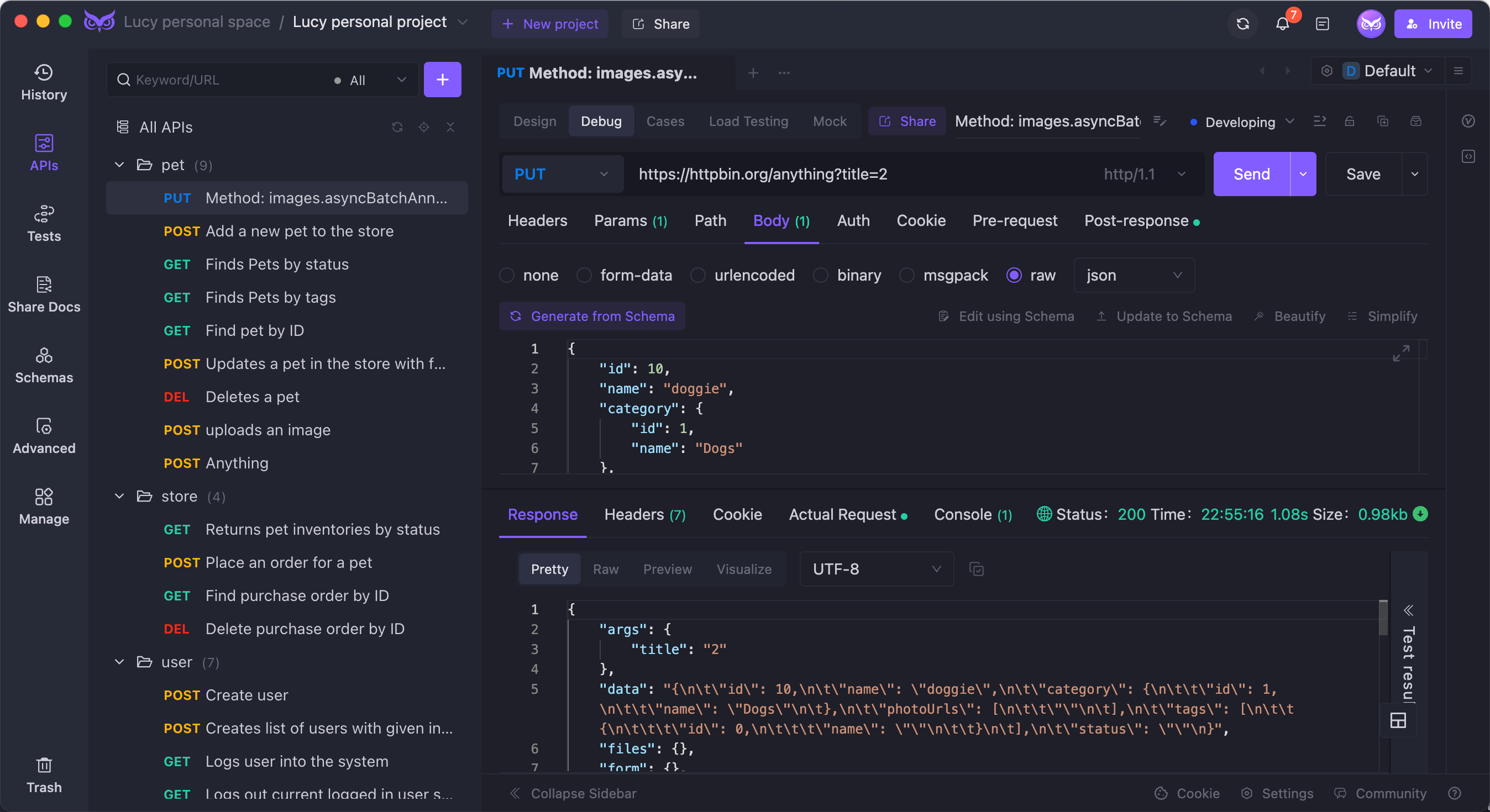
But recently, a new tool caught my eye: EchoAPI. Unlike Postman, EchoAPI is an ultra-lightweight collaboration tool for API development, and it integrates directly with VS Code. It supports Scratch Pad, making it a fantastic Postman alternative while also offering API design, debugging, automated testing, and load testing. Plus, it doesn't require you to log in!
Why EchoAPI?
EchoAPI has a few standout features:
- No login required: Just install and start using it.
- Supports Scratch Pad: Makes jotting down quick notes and ideas super easy.
- Ultra-lightweight: It’s incredibly fast and doesn’t bloat your system.
- 100% compatible with Postman script syntax: You can switch over without having to relearn anything.
Installing EchoAPI for VS Code
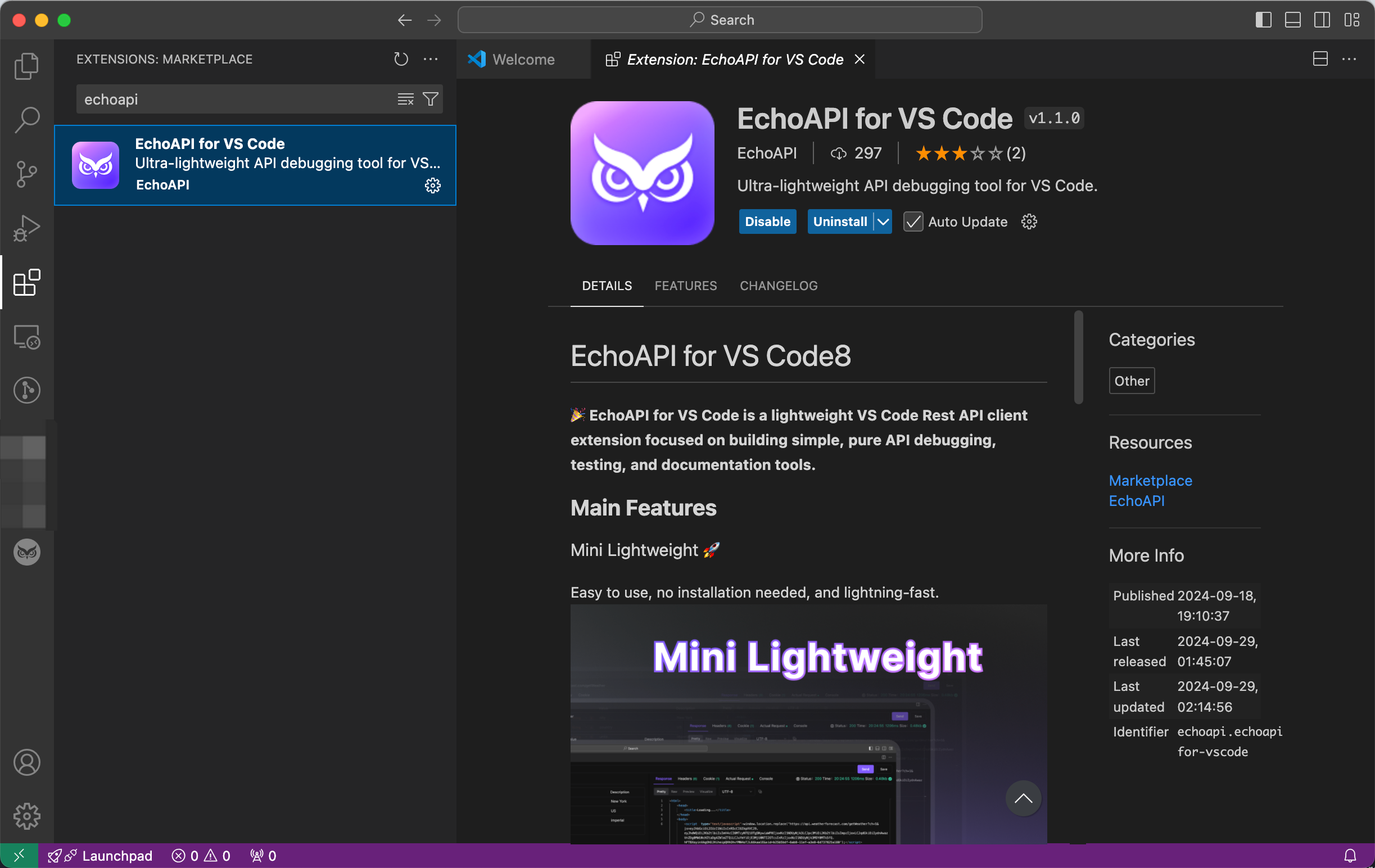
Getting started with EchoAPI is a breeze. Just navigate to the VS Code Extensions Marketplace, search for EchoAPI, and hit install. No additional tools or sign-ins are necessary—everything operates straight from your VS Code sidebar.
Creating New Requests
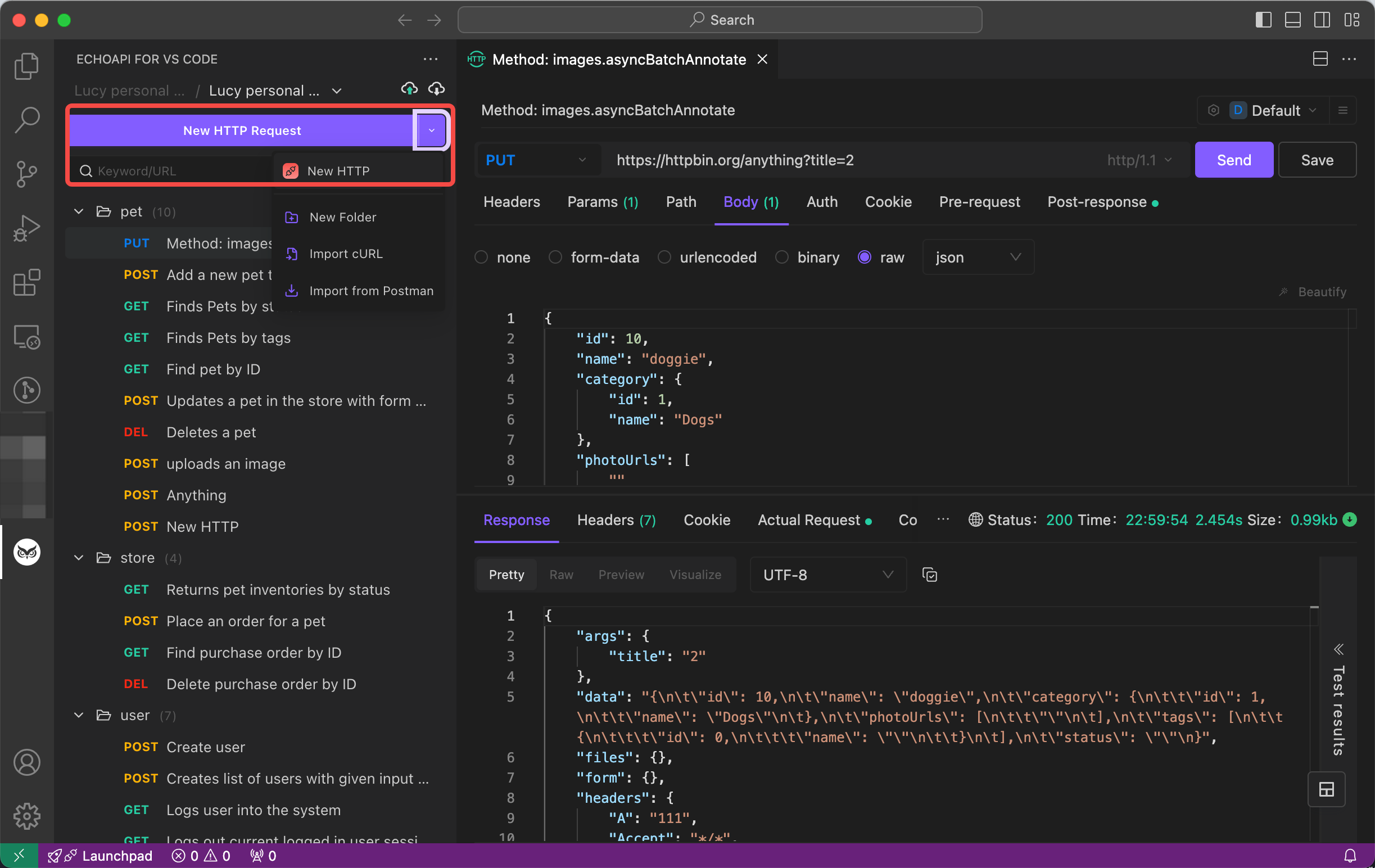
To create a new request, start by opening the EchoAPI tab where you’ll see options for recent activities, collections, and environments. It’s pretty intuitive if you’ve used Postman before. Right-click on the collection list to create a New Collection, name it, and then right-click on the collection name to add a new request.
Variables and Environments
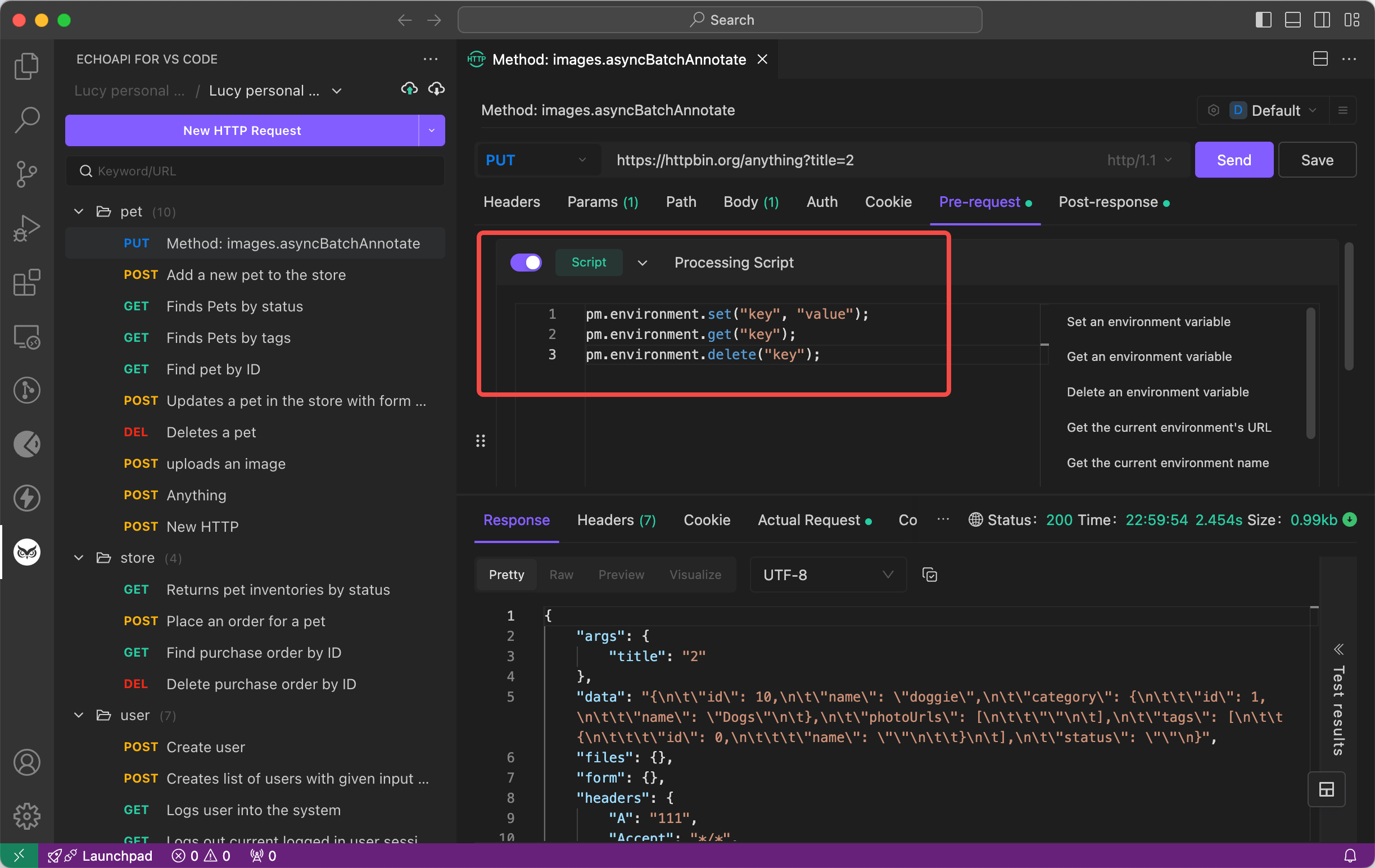
Just like in Postman, you can use variables and manage environments in EchoAPI. EchoAPI is 100% compatible with Postman script syntax. To activate a specific environment for your tests, just set it as active (indicated by a star next to the environment name). Importing and exporting environments is compatible with Postman 2.1.0 format and .env files.
System Variables
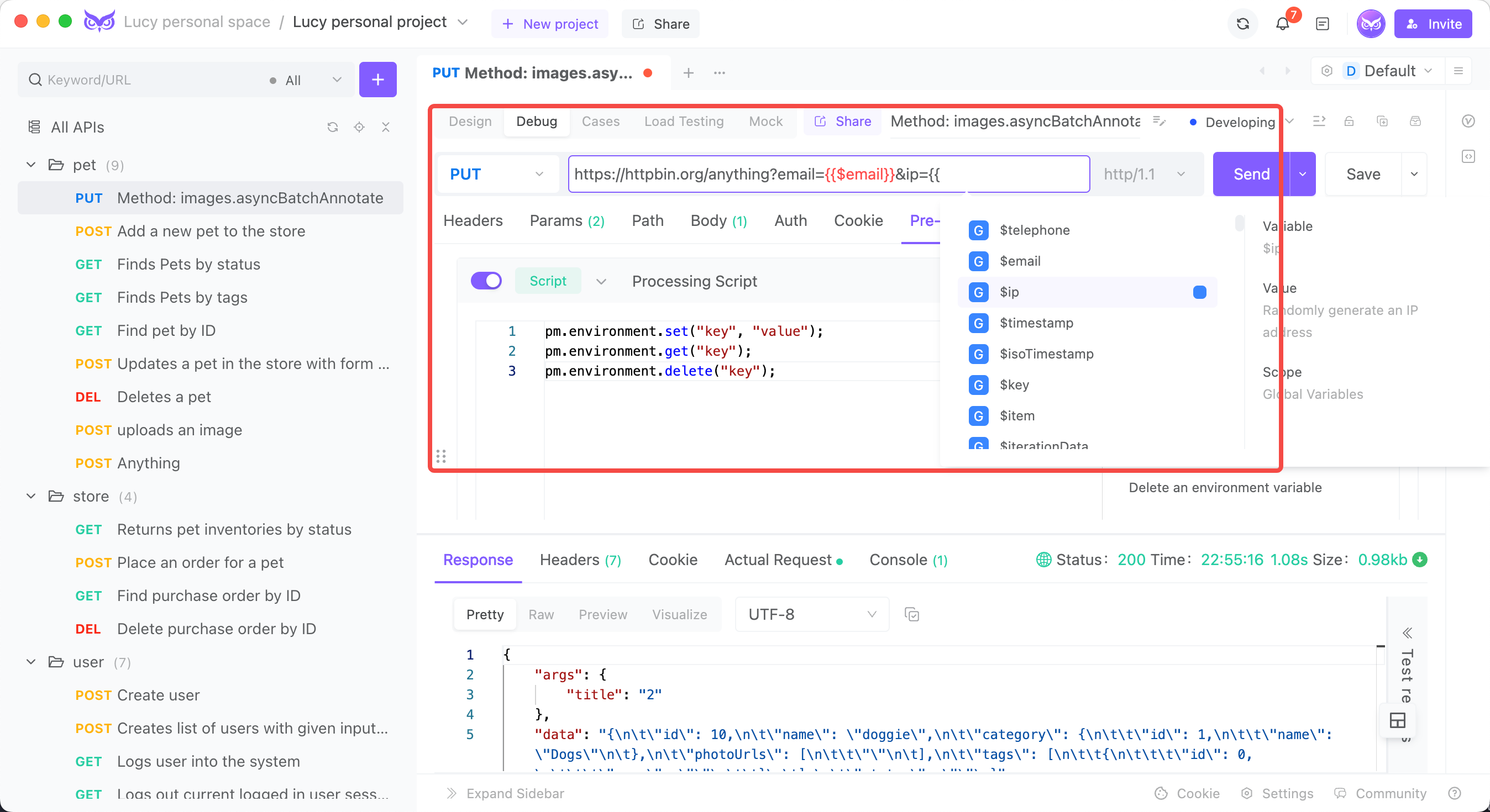
EchoAPI also has a set of system variables that streamline generating unique data. Prepend $ before the variable name to use them:
{{$guid}}- random UUID number{{$email}}- random email string
Script-less Testing
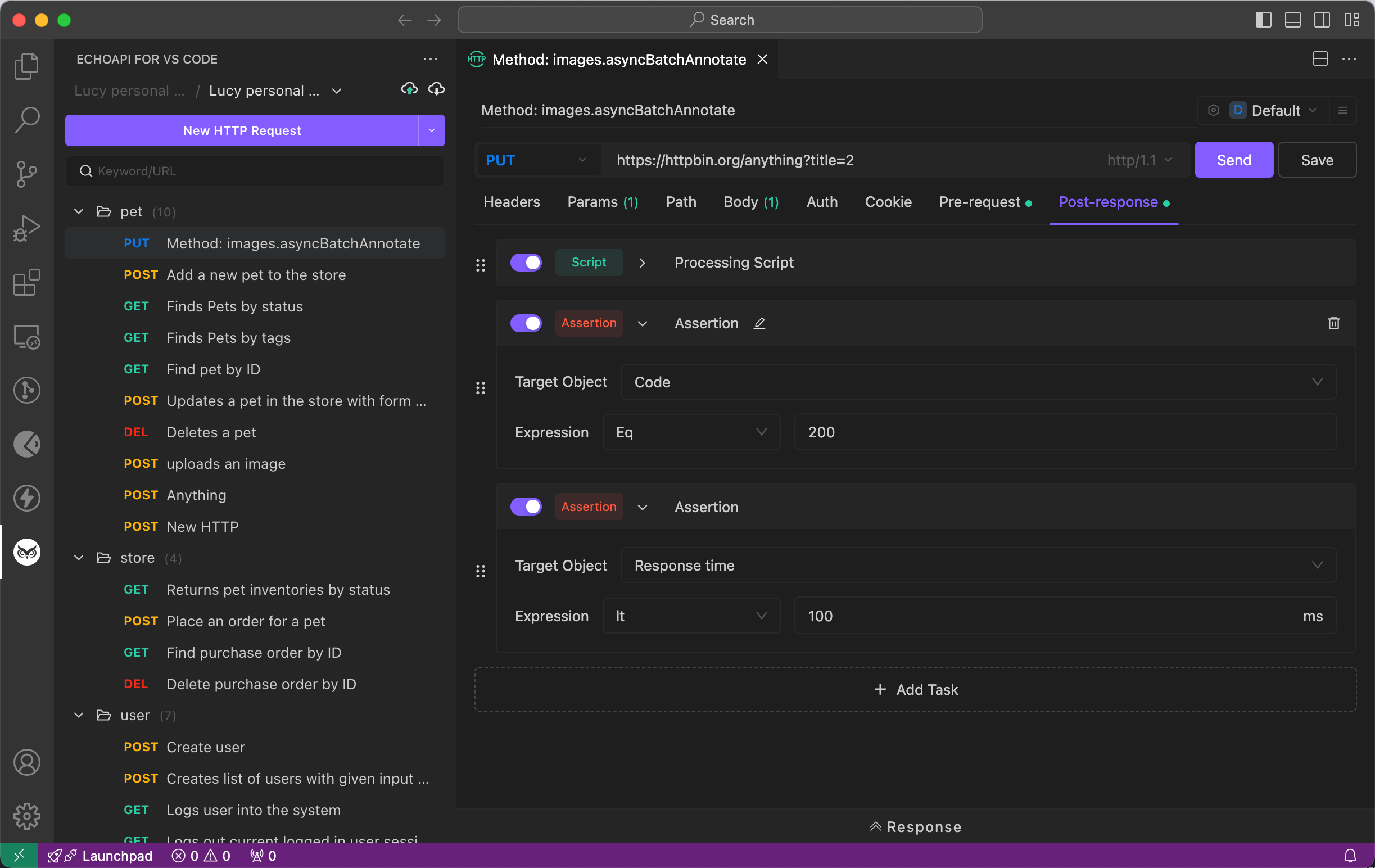
Testing in EchoAPI is straightforward and script-less. Choose a parameter from the dropdown menu, set your condition and value, and you’re done! There are plenty of parameters and conditions to choose from, like ResponseCode, ResponseBody, or Content-Type. You can even set values from API responses to environment variables or verify specific JSON path values.
Authentication
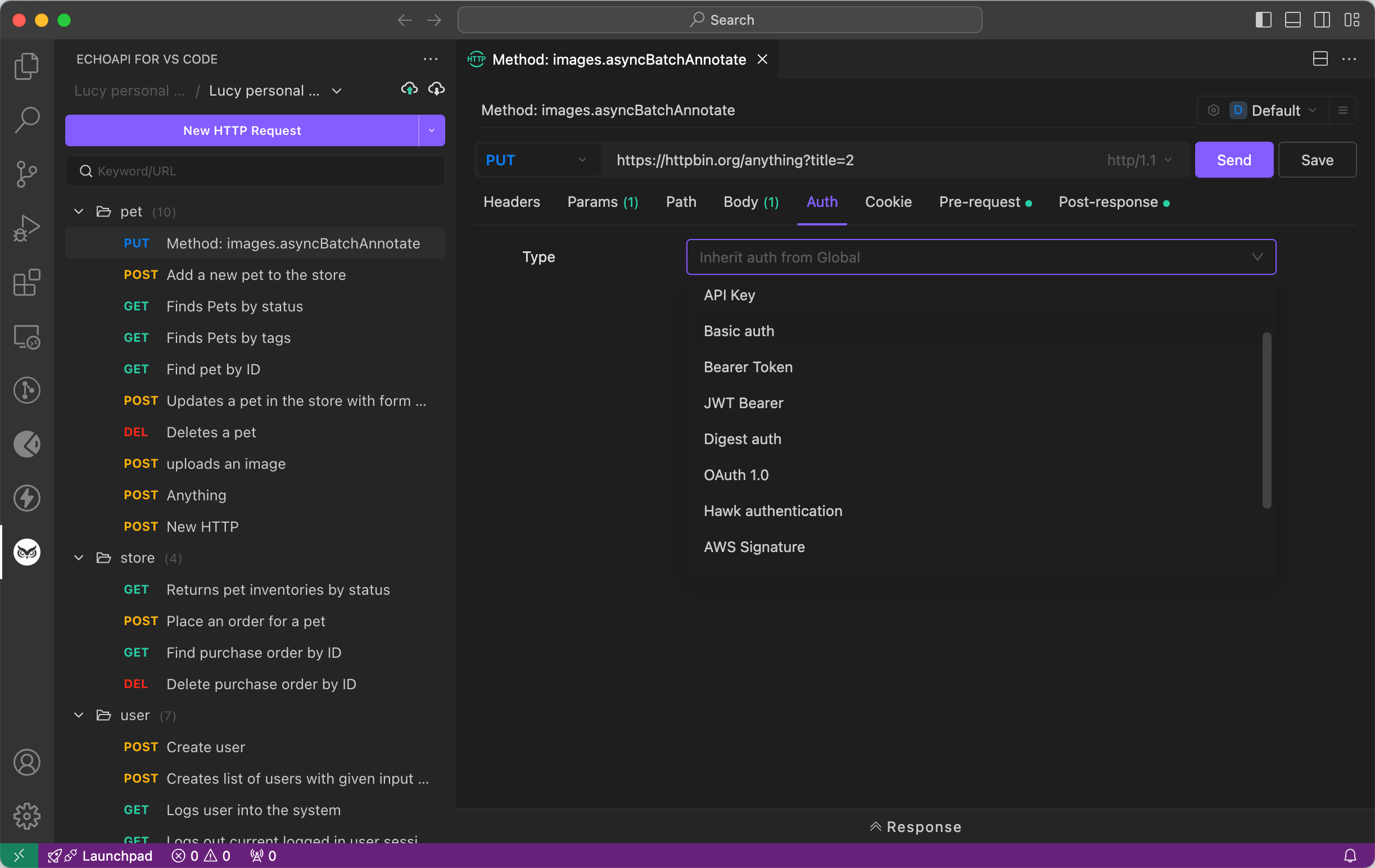
EchoAPI supports various authorization types, including None, Inherit, Basic Auth, Bearer, and OAuth 1.0. This is super useful for testing secured APIs that require credentials or tokens.
Useful Links
EchoAPI is continually growing, and I’ll definitely keep an eye on its progress. Here are some useful links:
Give EchoAPI a try and see how it compares to Postman for your API testing needs!









 EchoAPI for VS Code
EchoAPI for VS Code

 EchoAPI for IntelliJ IDEA
EchoAPI for IntelliJ IDEA

 EchoAPl-Interceptor
EchoAPl-Interceptor

 EchoAPl CLI
EchoAPl CLI
 EchoAPI Client
EchoAPI Client API Design
API Design
 API Debug
API Debug
 API Documentation
API Documentation
 Mock Server
Mock Server




